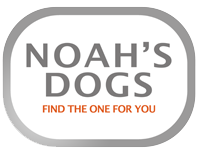Dog trainers
| It is important to train your dog from a young age if possible - but it is never too late to start or refresh your dog’s training. Not all dogs are ready for group classes, some may benefit from private training instead. But whatever you choose, it is your responsibility to ensure your dog has some basic training at the very least.
WHY USE A PROFESSIONAL TRAINER
It is a good idea to start training your puppy or dog as soon as possible. Being a responsible dog owner means making sure your dog has some basic obedience and can be kept under reasonable control in public places. It is important for their safety. At the very least your dog should have good recall.
Owners also need to be trained on how to treat their dog, as an owner’s behaviour can also be a cause of the problem. Owners can complicate matters by giving unclear and inconsistent messages to their dogs, making it difficult for him/her to understand what the owner wants from them.
Proper training, based around positive reinforcement, will improve your relationship and you will learn how to communicate better with your dog. It can also make your dog happier!
Dog training classes are a great way to socialise your dog and meet fellow dog owners.
Puppies need to be taught appropriate socialisation and appropriate skills. Not socialising puppies properly can lead to serious problems later on. Training will address puppy behaviour which could become a problem later on, such as jumping, pulling on the lead, unwanted barking, biting and nipping. Puppies must be taught appropriate play, polite greetings and confidence.
Behavioral problems are a major contributor to euthanasia and unwanted dogs, so choose wisely and take training seriously.
FINDING AND CHOOSING A DOG TRAINER
Ask your vet, friends, family or fellow dog owners (particularly those with well trained dogs!) to recommend a reputable trainer. Trainers will work on an individual basis or run group classes.
A skilled trainer should not need to use punishment or dominance reduction techniques. This approach can be extremely detrimental and can damage your relationship with your dog. There is no regulation of trainers, so choose carefully. Positive reinforcement is generally considered the best method for training.
WHAT TO CHECK FOR
Check qualifications and references.
You can find a complete list of trainer certifications on the Association of Pet Dog Trainers website. If you see CAAB after a trainer's name, this means he or she is a Certified Applied Animal Behaviorist. This title is given by the Animal Behavior Society. Only trainers who have done graduate work in the field of animal behavior are able to use it. You may also see CPDT following the name of a number of trainers. CPDT stands for Certified Pet Dog Trainer. The title is granted to trainers by the Certification Council of Pet Dog Trainers. Trainers must pass an exam which tests their knowledge of dog training.
Choose a trainer who is accredited with a professional organisation that has a code of practice, insurance and assessment procedures for membership.
Ask if you can observe a lesson or class. If the trainer will not let you view them in action look elsewhere. Remember a good trainer will be proud of the service they offer and will let you observe. They will also be glad you are taking the time to research your dog’s welfare. By watching a class you should be able to see how effective the trainer is. You should assess the instructor, and decide if you would be happy to bring your dog into that environment. Ask other dog owners about their experiences of the class and trainer.
WHAT TO EXPECT
Your trainer may be available for one to one training or may run classes where your dog will be trained as part of a group. Training as part of a group is important for socialising your dog.
Check whether the trainer requires you to show your dog’s proof of vaccination before you can join a class.
Professional trainers will use skills and techniques based on up-to-date research and methods. They will promote kind, fair and effective training. They do not follow “dominant” pack theories or use aversive training methods such as jabs to the side, shock collars or alpha rolling. They will not use potentially harmful and damaging equipment, such as prong, choke and electric collars.
Look for trainers who promote positive reinforcement techniques - this is kinder and more effective and will be far better for your relationship with your dog. There is often no “quick fix” to behaviour problems.
Do not force anxious dogs to participate in activities. Wait until they are relaxed and ready to take part. Be patient with puppies, it may take time for them get used to the environment. If your dog seems excessively distressed, group training may not be right for him and you should consider one-to-one training.
A trainer should not give advice they are not qualified to give. For serious behavioural problems such as aggression, owners should seek advice from a qualified behaviourist. Your vet should be able to refer you.
Do not break your dog’s trust and do not take on board ill-informed advice. Seek professional, quality help.
|
- There are no comments yet








